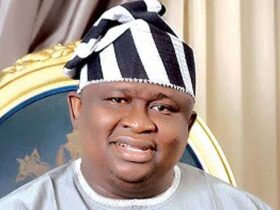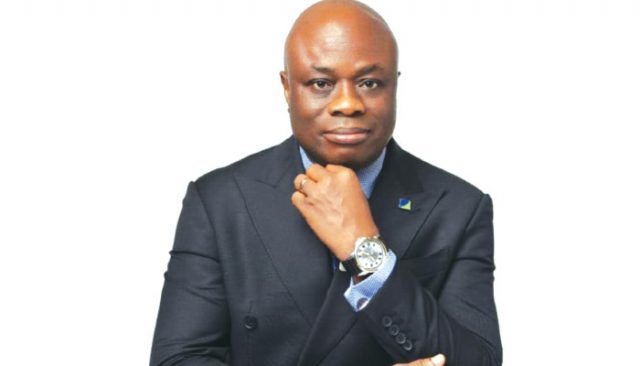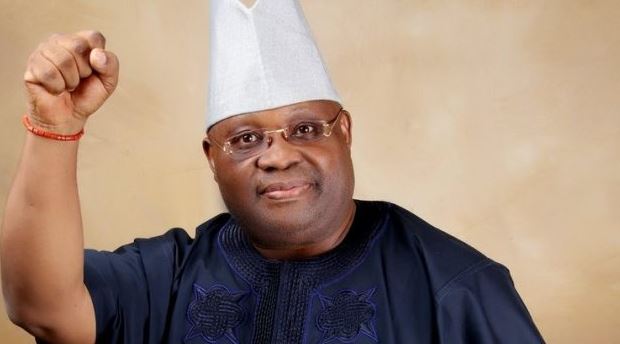Despite the current challenge of a major increase in petrol price, stakeholders have emphasised the potential long-term benefits of removing fuel subsidy.
A few hours after President Bola Tinubu announced the end of the petrol regime in his inaugural speech on May 29, petrol pump prices skyrocketed from N195/litre to over N500/litre in all states and the Federal Capital Territory.
Consequently, the huge spike in petrol prices has caused the prices of most goods and services to shoot up throughout the country, further lowering the disposable for most Nigerians.
Although analysts had for long been clamouring for the removal of petrol subsidies, which had been costing the country trillions of naira, the populace had been against the idea, because of the resultant impact on the economy. Nigerians are heavily dependent on petrol for energy because of the erratic power in the country.
The privatisation of the power sector has done little to improve the electricity supply in the country, compelling Nigerians to rely on petrol-powered generators for their household and business electricity needs. So, a slight upward review of fuel prices often has ripple impacts on Nigerians.
Although President Bola Tinubu alluded to the fact that although the removal of the petrol subsidy would impose an extra burden on citizens, he claimed it would free up money for education, regular power supply, transport infrastructure, and healthcare.
“I admit that the decision will impose an extra burden on the masses of our people. I feel your pain,” Tinubu said on Monday in a broadcast to mark Democracy Day.
Among other things, the fuel subsidy removal has led to a huge increase in the cost companies’ production cost, operating cost as well as cost of doing business.
Also, since the President’s announcement, economic and financial analysts have made several forecasts about the possible effects of the Federal Government’s decision to end the fuel subsidy regime.
However, during an advocacy dialogue forum organised by the Chartered Institute of Bankers of Nigeria via its Centre For Financial Studies last week, economic experts and officials of the institute analysed the potential benefits of the downstream petroleum sector
Themed, “Fuel Subsidy Removal: Opportunities for Individuals, Businesses, and the Way Forward,’’ various economic professors and business leaders took turns to give insights into a post-deregulation business and economic environment.
Subsidy removal benefits
According to the President/Chairman of Council, CIBN, Dr. Ken Opara, some individuals and companies perceive subsidy removal as a disaster, but the institute views it as an opportunity.
He said, “Of course, there will be challenges, but what we make of it and the opportunities it presents is essential. It is important to note that from 2016 to 2023, Nigeria has spent over N11.7trn on fuel subsidy. Taking this into perspective, in 2022 alone, Nigeria spent N4.3trn on subsidy. This fact represents over 15 per cent of the import figure of the country and almost 25 per cent of the budget of 2022, no country can continue running this way.”
The Head of the Department of Economics, University of Ibadan, Professor Adeola Adenikinju, highlighted how deregulation would improve the business climate and the economy.
The don said Nigeria needed to keep to a formula-based approach for determining fuel prices in the short term while expediting actions in respect of putting in place a vibrant domestic refining industry.
He said, “The current practice of using trucks to move fuels from Lagos to different parts of the country has destroyed our roads, led to the deaths of innocent Nigerians, and destruction of properties.
“In addition, smuggling of fuels to neighbouring countries will no longer be profitable as prices of fuel across the region will closely align. Nigeria will no longer subsidise fuel consumption across the neighbouring countries and provide a source of revenues for their governments through taxes imposed on fuels smuggled from Nigeria.”
According to Adenikinju, the government should sell its refineries to the private sector or run them like private companies.
“Nigeria will no longer spend N13bn every month on refineries that are not producing and inefficient, and would have saved over $19bn spent on TAM of refineries in the past eight years.”
He noted that the removal of subsidies would encourage efficiency in fuel consumption, and promote the switch to green energy in the energy consumption mix of Nigeria.
Meanwhile, Partner and Chief Economist at KPMG Nigeria, Dr. Yemi Kale, said the net benefits of the subsidy removal were positive, but noted that there would be disruptions arising from a direct increase in energy prices, inflation rate, and transportation fares.
He said, “This disruption has an indirect impact on the increase in food prices and consumer demand. This is so because their purchasing power is weakened; consumer demand also shrinks unless the government provides some kind of relief to cushion the effect.
“In addition, households would begin to cut their expenditures, leading to businesses recording decreases in demand amid rising costs of operation increases. This is particularly going to affect the Micro-Small and Medium-sized Enterprises, and this would eventually birth lay-offs, hence increasing unemployment rate and insecurities.”
For the Chief Executive Officer, Cowry Asset Management Company Limited, Johnson Chukwu, there are people at the end of the chain who do not have a social safety net, nor the laxity for any kind of adjustment because of their income level.
For such people, he believes the government needs to provide some relief.
The Director. CBN Centre for Economics and Finance at Ahmadu Bello University, Mohammed Haruna, advised the government to examine the policies and regulatory frameworks that bother on the consequence of the subsidy removal, and how it would open up growth opportunities.
He said, “Over time, the government should have a monitoring and evaluation framework that would ensure whatever changes that are coming within the policy framework are sustained.
“Government should not just come up with policies, particularly for the small-scale business, they (businesses) should also be able to access such facilities, as this would be able to enhance their livelihood.”
A professor of Energy and Electricity Law, University of Lagos, Yemi Oke, urged for more players to be brought on board with the commencement of operations by Dangote Refinery.
Experts allege corruption
But the Founder and Chief Consultant of B. Adedipe Associates Ltd, Dr Biodun Adedipe, highlighted how corrupt the subsidy regime was.
He said, “In economic theory, the essence of subsidy is to correct market failures (inefficient allocation of resources) or externalities, with the ultimate aim of achieving greater efficiency.
“It is either to ensure effective use of the resource or service in question (avoiding waste) or to enhance the value delivered.”
Adedipe noted that the petroleum sector had been overregulated and inefficiently regulated, noting that most activities were fraught with fraud and corruption.
He said, “Inefficiency and unsafe business practices were rife. What could have been legitimate subsidy benefits due to Nigerian taxpayers being inadvertently transferred to citizens of neighbouring West African countries? Most of the new investments in the downstream sector were not by responsible investors, but by those that wanted to take advantage of the strange opportunities, the target beneficiaries of fuel subsidy did not receive it.
“NNPC Ltd as an importer of refined products is tantamount to dirty deregulation. The erstwhile Petroleum Equalisation Fund was a market aberration that enabled corruption. The erstwhile pricing template and mechanism had in-built inefficiency and manipulation tendency/ In addition, the daily allocation of 450,000 barrels per day of crude oil for domestic refining/consumption completely obliterates and puts a lie to a subsidy.”
The Co-founder of Falcon Corporation Ltd, Audrey Joe-Ezigbo, asserted that corruption needed to be dealt with.
She said, “We have to be sure that the monies saved from the subsidy removal are channelled into the appropriate activities. However, businesses need to redesign their models and create efficiencies in the systems, while also trusting the government to do its own part.
“There is going to be a need for public-private partnerships, especially when it comes to infrastructure enablers that have to be put in place.”
Downstream sector deregulation
The decision to end the fuel subsidy was part of a broader effort by the government to deregulate the downstream sector. The sector had heavily regulated by the government, which fixed the prices of petroleum products.
The excessive regulation of the downstream sector has been identified as one of the major reasons for the low investment in the sector. And apart from stalling investment in the downstream sector, analysts believed government subsidisation of petroleum products had been shrouded in corruption.
The government had spent over N12tn subsidising petrol in the last 18 years, putting a huge strain on public revenue.
According to the World Bank, the amount the government spent on petrol subsidies rose from 0.7 per cent to 2.3 per cent of the country’s Gross Domestic Product in 2022.
With the government struggling with revenue constraints, it was forced to deregulate kerosene and diesel, with little resistance from Nigerians. However, the government had always met with brick walls whenever it attempted to remove the petrol subsidy because it is central to the livelihood of most Nigerians.
The issue came to a head when the government started borrowing to subsidise petrol, worsening the country’s debt profile. The government spent about 96.3 per cent of its revenue servicing its debt in 2022.
With petrol subsidy weighing heavily on government revenue, the Buhari administration proposed to end the subsidy regime, but backed out at the last minute, despite arguments by the organised private sector that the petrol subsidy was not doing the country any good. Experts claimed that the government could no longer afford to subsidise PMS.
So, when former President Buhari signed the Petroleum Industry Act in 2021, pundits saw it as a good step towards the total deregulation of the country’s oil sector.
The Chief Executive Officer of Ardova PLC, Olumide Adeosun, decried the fact that deregulation, which was the most fundamental aspect of the Petroleum Industry Act of 2021, had not been implemented.
He said, “Deregulation must happen in full and it must happen immediately. We can no longer have a situation where there is a single supplier. As we are deregulating, we must make sure we have excellent execution.”
According to him, there is a need for transparent and sustainable deregulation, ensuring that the public and relevant stakeholders are actively involved.
He claimed that deregulation would effectively combat oil smuggling, attract more investments to the downstream sector, and redefine the resilience of financial resources.
Also speaking on the issue, the President of Petroleum Products Retail Outlets Owners Association of Nigeria, Billy Gillis-Harry, explained that deregulation meant that all elements of subsidy and equalisation, with respect to the cost of petrol, had been removed from the petrol pricing framework.
However, Gillis-Harry stressed that the negative attitude posed a significant challenge to the Nigerian economy, as he stated that the deregulation of the downstream sector would shift the pricing governance to market forces.
He said, “In a market-driven economy, customers hold significant influence, and this transition will eventually result in reduced product prices due to healthy competition. Deregulation fosters market competition, leading to enhanced efficiency within the downstream sector. Moreover, deregulation allows for flexible pricing mechanisms driven by market forces.”










